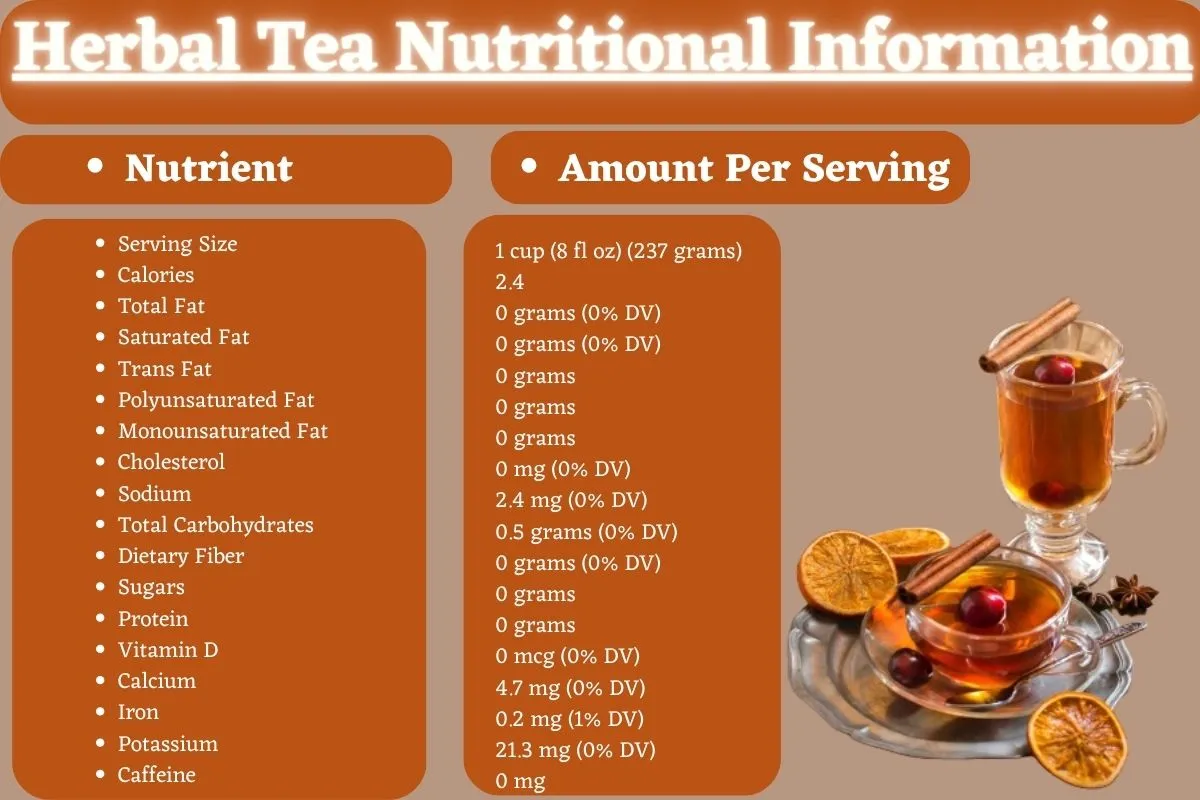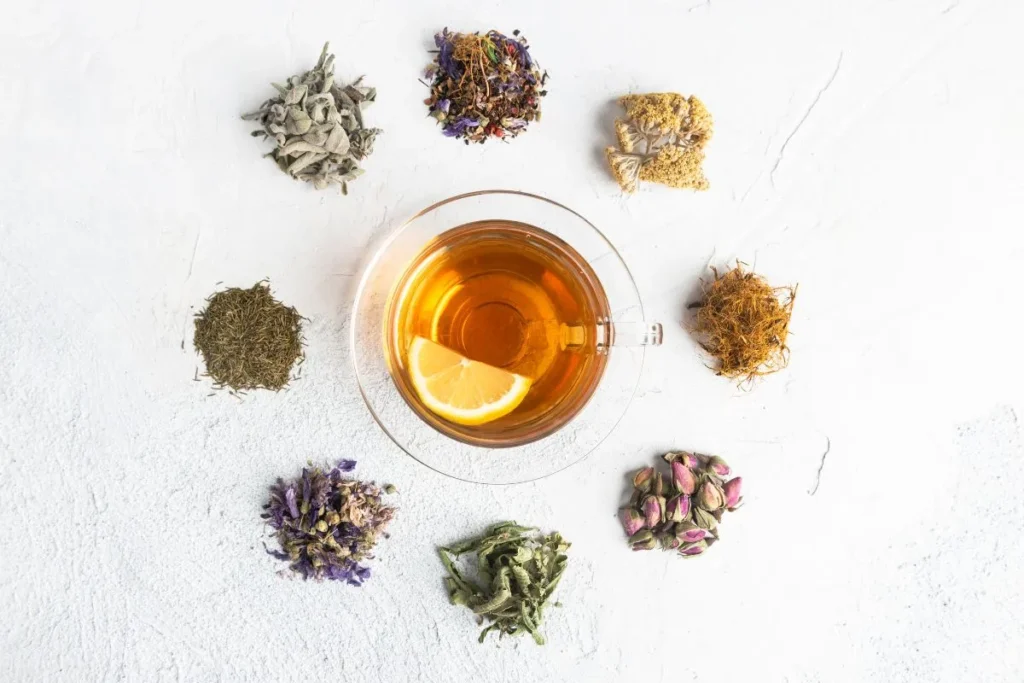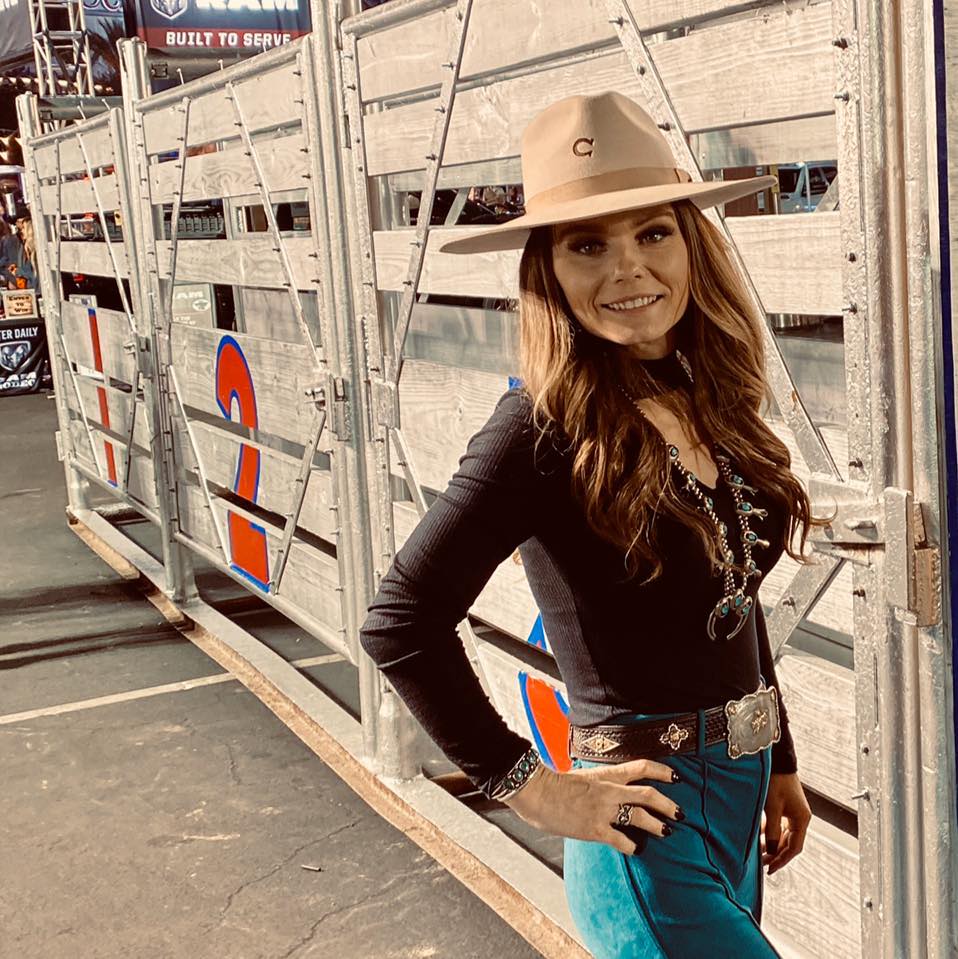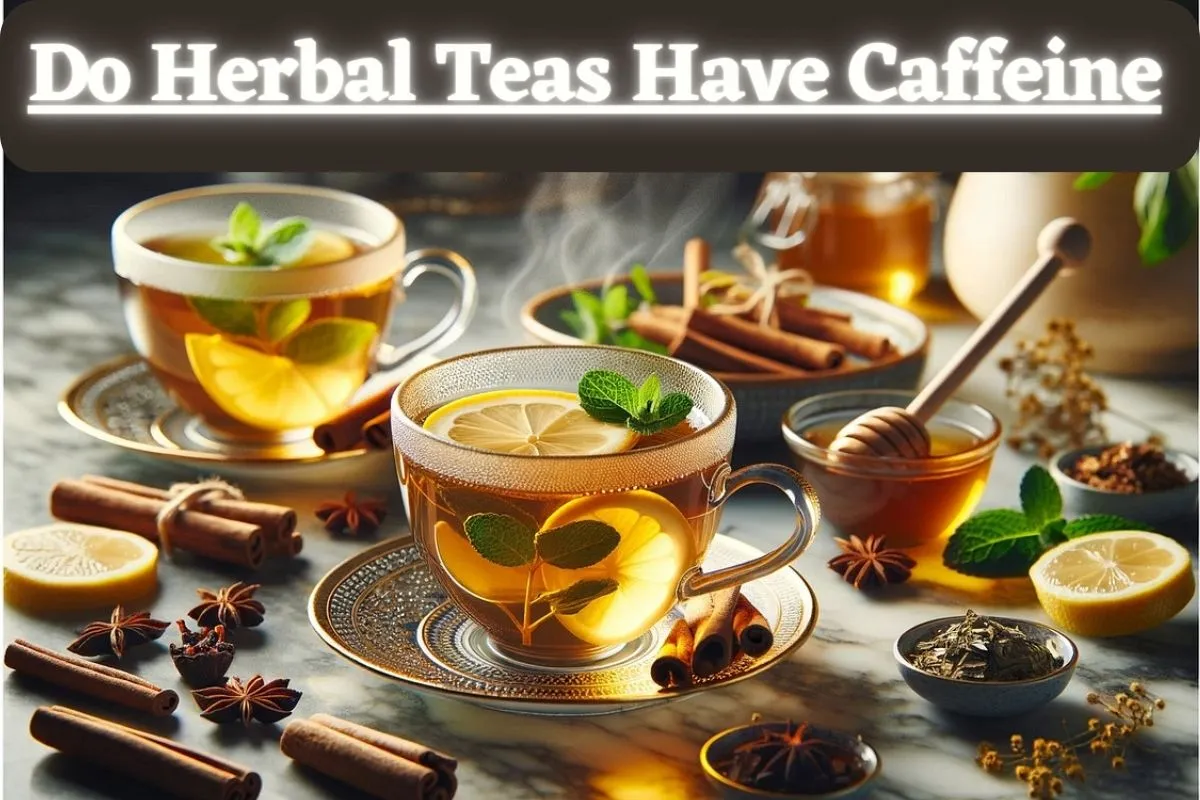Have you ever wished for a warm, soothing drink before bed but worried that the caffeine in tea might keep you awake? Turns out, for centuries, people have been turning to the world of herbs for delicious caffeine-free brews.
Known as herbal teas, or more accurately “tisanes,” these concoctions have a rich history dating back to the dawn of medicine. They offer a world of flavor and potential benefits without the jitters of traditional tea.
So, do herbal teas have caffeine? Let’s dive in and discover the answer to Do Herbal Teas Have Caffeine.
Importance of Knowing Caffeine Content in Herbal Teas
Herbal teas, or tisanes, are beverages made by infusing various parts of plants – flowers, leaves, roots, bark, seeds, or fruits – in hot water. They have been enjoyed for centuries across cultures, with evidence of their use dating back to ancient civilizations like Egypt and China.
These teas were often the primary source of remedies before the advent of modern medicine, used to address a wide range of ailments. Today, they are a popular choice for those seeking a caffeine-free alternative to traditional teas or a flavorful way to boost hydration.
Many herbal teas boast potential benefits due to their plant-based ingredients. Some, like chamomile, are known for their calming effects, while others like ginger or peppermint, can aid digestion. Herbal teas may also offer antioxidant support or provide immune system boosts, depending on the specific herbs used.
A common misconception is that all herbal teas are naturally caffeine-free. While most are, there are exceptions like yerba mate, guayusa, and yaupon holly, which do contain caffeine.
It’s important to be aware of the specific ingredients when choosing herbal teas, especially if you are sensitive to caffeine, pregnant, breastfeeding, or taking certain medications. Some herbs can interact with medications or have potential side effects. Always consult your doctor before using herbal teas regularly, particularly if you have any health concerns.
Do Herbal Teas Have Caffeine?
For the most part, yes! The vast majority of herbal teas are naturally caffeine-free. This is because they are made from infusions of various plant parts that don’t contain the caffeine compound found in traditional teas derived from the Camellia sinensis plant.
However, it’s important to note that there are a few exceptions. Teas made from ingredients like yerba mate, guayusa, or yaupon holly do contain caffeine.
The following factors can affect the caffeine content:
Plant Sources
Naturally caffeinated plants:
Specific herbs like yerba mate, guayusa, and yaupon holly are naturally caffeinated. The amount of caffeine they contain can rival some traditional teas. If you’re looking for a caffeine-free option, steer clear of teas made solely from these ingredients.
Trace Caffeine from Processing:
Even traditionally caffeine-free herbs can pick up trace amounts of caffeine during processing. This might occur due to cross-contamination if equipment is shared with caffeinated teas and not adequately cleaned. While the amounts are usually minuscule, it could be a concern for those highly sensitive to caffeine.
Hidden Caffeine in Ingredients:
Some blends seemingly labeled as “herbal” may contain hidden caffeine sources. Be wary of ingredients like “natural flavors” which could mask small amounts of caffeinated tea extracts.
Brewing Factors
Steep Time
The longer you steep your herbal tea, the more caffeine (if any is present) will be extracted. If you want to minimize caffeine, opt for shorter steep times.
Water Temperature
As with traditional teas, hotter water temperatures release more caffeine from plant material. Using slightly cooler water for your herbal infusions can help keep caffeine levels low.
Blends
Mixing with caffeinated teas
Many herbal blends intentionally incorporate traditional teas like black, green, or white tea. This practice will introduce a significant amount of caffeine into the beverage.
So, always read the ingredients list, especially if you are sensitive to caffeine. It’s the most reliable way to know for sure if your herbal tea has caffeine sources. Look beyond just the primary herbs listed, sometimes caffeine can hide in less obvious ingredients.
If you’re sensitive to caffeine, err on the side of caution. Select herbal teas that are clearly and specifically labeled caffeine-free. Opt for trusted brands that are more likely to have stringent quality control measures to prevent cross-contamination.
Herbal Tea Variants and their Caffeine Content
Here’s a list of various herbal tea variants:
Chamomile (Caffeine-free)
Chamomile Tea classic choice is beloved for its calming effects and ability to promote restful sleep. Its delicate floral flavors offer a soothing and comforting experience.
Peppermint (Caffeine-free)
Refreshing and invigorating, peppermint tea not only offers a pleasant flavor but also aids digestion and eases upset stomachs.
Ginger (Caffeine-free)
A warming, spicy, and slightly pungent brew, ginger tea can help with nausea and inflammation. It is highly regarded for its potential immune-boosting properties.
Hibiscus (Caffeine-free)
This tea boasts a vibrant ruby-red hue and delivers a tart and fruity flavor profile. Hibiscus is naturally rich in antioxidants and may offer potential benefits for blood pressure regulation.
Rooibos (Caffeine-free)
Also known as “red bush tea,” rooibos is a naturally sweet and earthy option. It is widely enjoyed for its caffeine-free status and high levels of beneficial antioxidants.
Yerba Mate (60 – 85 mg of caffeine per 8 fl oz)
A traditional South American staple, yerba mate is known for its earthy and somewhat bitter flavor profile. It provides a significant caffeine boost, offering an alternative energy source to coffee, often with fewer jittery side effects.
Guayusa (30 – 50 mg of caffeine per 8 fl oz)
This caffeinated tea hails from the Amazon rainforest, where it is consumed for focus and alertness. Guayusa delivers a smoother caffeine experience compared to coffee and boasts unique flavors with hints of sweetness.
Yaupon Holly (20 – 40 mg of caffeine per 8 fl oz)
Native to North America, this caffeinated holly species is increasing in popularity. Yaupon holly tea offers a moderate level of caffeine and earthy, subtly sweet flavor notes.
List of Ingredients in Herbal Tea
Here’s a list of common ingredients found in herbal teas:
- Chamomile: Chamomile, well-known for its calming effects, is frequently used to ease stress and facilitate digestion.
- Peppermint: Refreshing and invigorating, peppermint is prized for its cooling effect and potential to alleviate digestive discomfort.
- Ginger: With its spicy and warming flavor, ginger is often used in herbal teas to support digestion and ease nausea.
- Lemon Balm: A member of the mint family, lemon balm lends a citrusy aroma and is believed to have calming effects on the mind and body.
- Hibiscus: Vibrantly colored and tart in flavor, hibiscus is rich in antioxidants and is commonly used to make refreshing herbal teas.
- Lavender: Known for its floral aroma and relaxing properties, lavender is often used in herbal teas to promote calmness and stress relief.
- Rooibos: Originating in South Africa, rooibos is an herbal tea without caffeine that is prized for both its earthy flavor and its health advantages.
- Cinnamon: Warm and spicy, cinnamon adds depth of flavor to herbal teas and may have antioxidant and anti-inflammatory properties.
- Nettle: Nutrient-rich and earthy in flavor, nettle is believed to support overall health and may help alleviate seasonal allergies.
- Echinacea: Often used to support the immune system, echinacea is a popular ingredient in herbal teas, especially during cold and flu season.
- Lemongrass: With its citrusy aroma and flavor, lemongrass adds brightness to herbal teas and may have digestive and anti-inflammatory benefits.
- Licorice Root: Sweet and slightly woody in flavor, licorice root is used to add natural sweetness to herbal teas and may support respiratory health.
- Rosehips: Rosehips are tart and delicious, and they are a popular addition to herbal teas that enhance immunity because they are high in antioxidants and vitamin C.
- Passionflower: Believed to have calming effects on the nervous system, passionflower is used in herbal teas to reduce anxiety and promote restful sleep.
Herbal Tea Nutritional Information

Herbal teas are renowned for being naturally low in calories and fat-free. With a typical serving size of 1 cup (8 fl oz), you can expect about 2-3 calories per cup. Herbal teas also contain zero saturated or trans fats and no cholesterol.
They offer a negligible amount of carbohydrates, fiber, and sugars and are entirely protein-free. In terms of vitamins and minerals, herbal teas generally provide trace amounts of calcium, iron, and potassium. Most importantly, most herbal teas are naturally caffeine-free, making them a great option at any time of day.
| Nutrition Facts | Amount Per Serving |
| Serving Size | 1 cup (8 fl oz) (237 grams) |
| Calories | 2.4 |
| Total Fat | 0 grams (0% DV) |
| Saturated Fat | 0 grams (0% DV) |
| Trans Fat | 0 grams |
| Polyunsaturated Fat | 0 grams |
| Monounsaturated Fat | 0 grams |
| Cholesterol | 0 mg (0% DV) |
| Sodium | 2.4 mg (0% DV) |
| Total Carbohydrates | 0.5 grams (0% DV) |
| Dietary Fiber | 0 grams (0% DV) |
| Sugars | 0 grams |
| Protein | 0 grams |
| Vitamin D | 0 mcg (0% DV) |
| Calcium | 4.7 mg (0% DV) |
| Iron | 0.2 mg (1% DV) |
| Potassium | 21.3 mg (0% DV) |
| Caffeine | 0 mg |
Alternatives to Herbal Teas and their Caffeine Content

Some of the most popular herbal tea alternatives include:
Chicory Root Coffee
Another naturally caffeine-free option, chicory root coffee provides a coffee-like experience without the jitters. Its robust, earthy, and slightly bitter flavor profile satisfies coffee cravings, and can be customized further with spices like cinnamon or nutmeg. Chicory root is particularly beneficial for digestive health due to its rich inulin content, a prebiotic fiber that nourishes good gut bacteria.
Fruit Infusions
Fruit infusions offer endless possibilities and are brimming with vitamins and delicious flavors. Experiment with fresh or dried fruits like berries, citrus, apples, or tropical fruits, adding herbs like mint or basil for more complexity. These infusions are naturally caffeine-free, refreshing, a great way to increase hydration, and can be enjoyed hot or cold.
Golden Milk
Golden milk is a warm, comforting, and often slightly spicy beverage that’s naturally caffeine-free. Black or green tea can be added for a caffeinated version. Its key ingredients – turmeric, ginger, cinnamon, and a touch of black pepper – possess powerful anti-inflammatory properties that can benefit joint health and provide a sense of overall well-being.
Dandy Blend
This blend of roasted dandelion and chicory roots closely mimics the flavor and mouthfeel of coffee, making it a satisfying caffeine-free coffee replacement. It’s a good source of potassium and magnesium, supports digestion, and offers a gentle detoxification for the liver.
Hot Water with Lemon or Lime
This classic, simple beverage is caffeine-free, and offers a refreshing citrusy kick. Customize it with ginger, mint, or a pinch of cayenne for extra flavor. Hot water with lemon or lime boosts hydration, provides vitamin C, and is believed to aid in digestion and detoxification.
Apple Cider Vinegar Drinks
Tart and tangy, these caffeine-free drinks are often balanced with sweeteners and warming spices. Best enjoyed diluted, they may offer benefits for blood sugar control, support gut health, and have a mild appetite-suppressing effect.
Sparkling Water with Flavorings
This bubbly alternative to plain water helps fight soda cravings without added sugars. Choose from countless fruit and botanical flavored options, or even make your own at home by infusing sparkling water with fresh ingredients.
Kombucha
Kombucha boasts a tart, slightly effervescent profile with various flavor combinations. It contains trace amounts of caffeine from the fermentation process, but its primary benefits come from the probiotics that support digestive health and may boost the immune system.
Mushroom Drinks
Caffeine-free and earthy, these drinks can become tasty coffee substitutes with the addition of spices. Certain mushrooms, like chaga and reishi, offer adaptogenic benefits, helping the body cope with stress, and may support immune function and cognitive health.
| Beverage | Caffeine Content |
| Chicory Root Coffee | Caffeine-free |
| Fruit Infusions | Caffeine-free |
| Golden Milk | Caffeine-free |
| Dandy Blend | Caffeine-free |
| Hot Water with Lemon or Lime | Caffeine-free |
| Apple Cider Vinegar Drinks | Caffeine-free |
| Sparkling Water with Flavorings | Caffeine-free |
| Kombucha | 47.5 mg per 247g |
| Mushroom Drinks | Caffeine-free |
Conclusion
Do Herbal Teas Have Caffeine? No, The majority of herbal teas are naturally caffeine-free, offering a flavorful and relaxing alternative to caffeinated beverages. This makes them a versatile choice for any time of day, especially for those looking to wind down before bed.
However, keep in mind that a few exceptions like yerba mate, guayusa, and yaupon holly do contain caffeine. As with any beverage, it’s always wise to read the ingredient list carefully to determine the caffeine content and find the perfect herbal tea to suit your needs and preferences.
Frequently Asked Questions
Q1. What is herbal tea good for?
Herbal teas offer various potential benefits depending on the specific herbs used. Some common benefits include promoting relaxation and sleep (chamomile), aiding digestion (ginger, peppermint), boosting the immune system (elderberry, echinacea), and offering an abundance of antioxidants for overall health. Herbal teas are also hydrating and provide a warm, comforting experience, making them a great way to unwind.
Q2. Which herb is best for tea?
There’s no single “best” herb for tea, as the choice depends on your preferences and specific needs. Popular options include chamomile for its calming effects, peppermint for its invigorating flavor and digestive support, ginger for its warming and anti-inflammatory properties, and hibiscus for its tart, fruity flavor and antioxidant content.
Q3. Who should not drink herbal tea?
While generally safe, certain groups of people should exercise caution with herbal teas. Pregnant or breastfeeding women should consult their doctor before using herbal teas regularly as some herbs might not be suitable. Additionally, those with underlying health conditions or taking medications should check with their healthcare provider, as some herbs can interact negatively with medications.
Q4. How much herbal tea is OK?
A moderate intake of 2-3 cups per day is generally considered safe for most adults. If you’re new to herbal teas, start slowly and observe how they affect your body. If you experience any adverse reactions, discontinue use and consult your doctor.
Q5. What is the difference between herbal tea and regular tea?
The key difference lies in their source. Regular tea (black, green, oolong, etc.) comes from the Camellia sinensis plant and naturally contains caffeine. Herbal teas, or tisanes, are made from various herbs, flowers, roots, bark, and fruits and are mostly caffeine-free.

Rossi Glover, the passionate Owner of Grand Lake Coffee, infuses every cup with her love for coffee and dedication to quality. With an extensive background in the art and science of coffee, Rossi is not just a connoisseur but a storyteller, sharing the intricate tales behind each brew.

